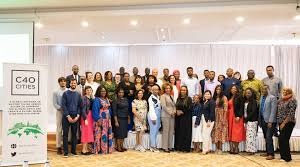
-Manufacturing industry’s annual growth hits 10.1%
ADDIS ABABA – The Industrial Parks Development Corporation (IPDC) disclosed that it has been establishing Industry Project Service (IPS), logistics and transportation services, agriculture, construction and hotel as new business units .
This was noted yesterday during stakeholders’ forum on macroeconomic reforms implementation in manufacturing industry sector. The forum was organized by the IPDC in collaboration with the Ethiopian Investment Commission (EIC) .
Speaking at the occasion, IPDC Director General Fiseha Yitagesu (PhD) said that the IPDC has been working to establish business units such as IPS, logistics and transportation services, agriculture, construction and hotel business units under IPDC to make it more entrepreneurs. It has also planned to transform parks into dynamic Special Economic Zones (SEZ) adding extra services and works in the coming 5 or 10 years.
The SEZ would be launched in the Dire Dawa Free Trade Zone. The guideline and other legal frameworks are finalized. The remaining task is launching operation. The objective of establishing SEZ is to boosting operational efficiency excellence and infrastructure quality, balancing local and foreign investors, emphasize on import substitution and export promotion, create quality jobs, diversify investments and others, he said.
The ongoing macroeconomic reforms such as opening up of wholesale, retail, export-import trade, foreign exchange flotation, banking sector liberalization and others would contribute to the effectiveness of investors or private sector, he said.
Some 85% of shades in industrial parks seized by investors the remaining 15% of shades are available for future investments. Currently, some 147 investors are operating in parks of which over 51% are local investors.
According to him, as of now, there are 70,000 employees in parks. Hawassa and Bole Lemi Industrial Parks giant parks that are highly contributing in export earnings amount and job creation.
So far, the parks are facing poor export performance, low operational excellence, global and local uncertainty, low resource optimization, bureaucratic hurdles, foreign exchange shortage, infrastructure gaps, regulatory complexities and others challenges, he noted.

For his part, Industry Minister Melaku Alebel stated that the annual growth of manufacturing sector has hit 10.1%. Hence, the sector requires creating, import substitution, more job opportunities. Some 78% of country’s export was raw agricultural products during the just ended Ethiopian fiscal year. Changing this trend needs industry parks to operate in their full capacity as well as joining of new additional investors to export value added products.
Furthermore, the country has been undertaking giant economic reforms. Local and foreign investors have to utilize these lofts of reform opportunities since the policy reform only could not bring change. Hence, the government is committed to improve production and productivity of manufacturing industry sector, he added.
BY TSEGAYE TILAHUN
THE ETHIOPIAN HERALD FRIDAY 6 SEPTEMBER 2024





